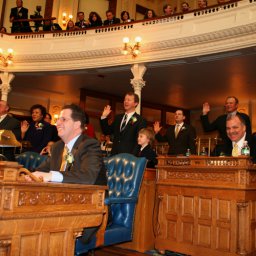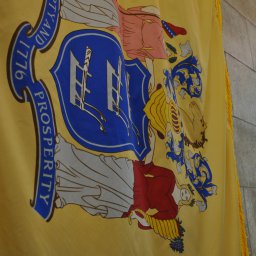TRENTON – A bill sponsored by Senators Loretta Weinberg and Shirley K. Turner which would make changes to the “Primary Care Practitioner Loan Redemption Program” to expand the scope of the program to other primary care practitioners was approved by the Assembly today by a vote of 69-5, with two abstentions, receiving final legislative approval.
“Today’s Assembly vote was an important step forward in guaranteeing access to quality health care services for New Jerseyans living in underserved communities,” said Senator Weinberg, D-Bergen, and Vice Chairwoman of the Senate Health, Human Services and Senior Citizens Committee. “This bill will make sure that we have the health care resources in place in neighborhoods that have the greatest need for doctors, nurses and other health care professionals. It will bring quality care to the community, and encourage health care professionals to practice medicine where their skills are needed most.”
“Many of the people living in the communities affected by this bill rely on limited mass transit and public transportation to get to where they need to go,” said Senator Turner, D-Mercer, and Chairwoman of the Senate Education Committee. “Seeing a doctor the next town over is simply not an option for these folks, many of whom work for hourly wages and cannot afford to take time off for doctors’ visits. By bringing medical professionals into the community, we can realize the promise of accessible health care for people who would otherwise be out of options.”
The bill, S-1220, would expand and rename the “Primary Care Physician and Dentist Loan Redemption Program,” which provides for partial loan reimbursement for physicians and dentists practicing in areas designated by the State as medically-underserved, to reflect the inclusion of other primary care providers, including nurse practitioners. The bill would also expand the criteria used to determine and rank designated underserved areas to account for not only the financial resources of the population of an area, but also the percentage of the population that’s eligible for government medical assistance, and the percentage of the population that is uninsured. Finally, the bill would increase the maximum loan amount authorized for redemption under the program, from $120,000 to $120,000 or the maximum amount authorized by the federal government – whichever is higher.
“By expanding the criteria used to determine what is and is not a medically-underserved community, we can make better use of our existing resources in neighborhoods that truly need access to care,” said Senator Turner. “With the economic problems facing the State, now more than ever we have to use State resources smartly, and use the loan redemption program as an incentive for health care providers to go to areas in greatest need. The changes in the loan redemption program will help us get the biggest bang for our buck, and expand health care access to communities that have historically been without.”
“As the debate continues in Washington D.C. about the best system for universal health care in the nation, we have to recognize that universal coverage means little to people who can’t find a doctor in their hometown,” said Senator Weinberg. “This legislation would establish a major incentive for health care professionals to practice where they can do the most good, and ensures that quality health care is accessible to everyone. If universal health care is going to be truly universal, we have to do a better job in encouraging health care professionals to set up shop in medically-underserved communities.”
The bill now heads to the Governor to be signed into law.



